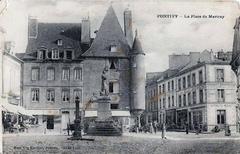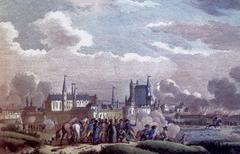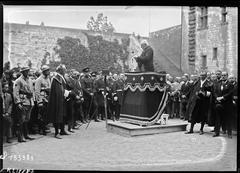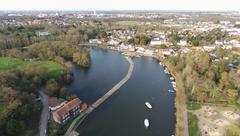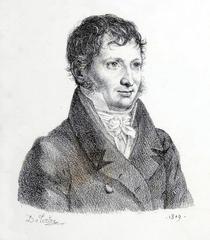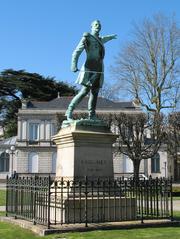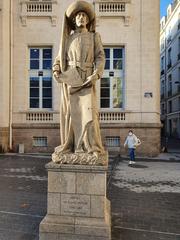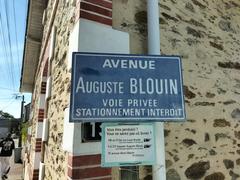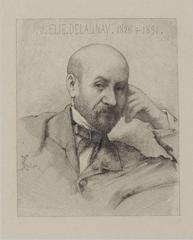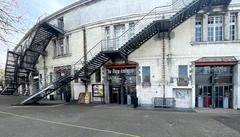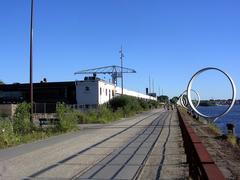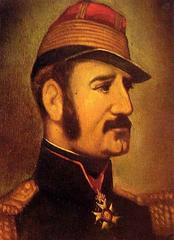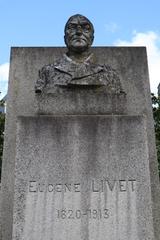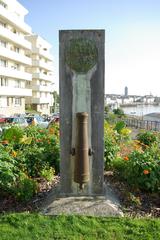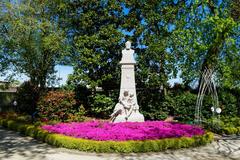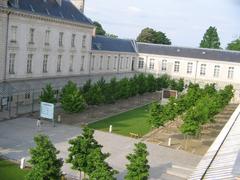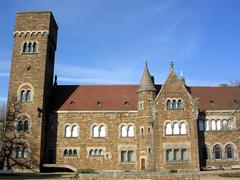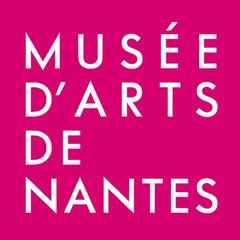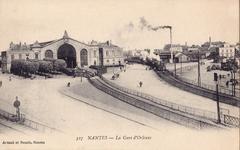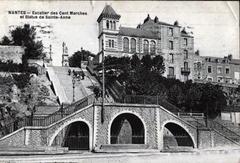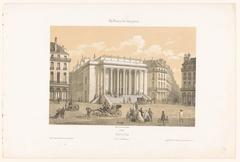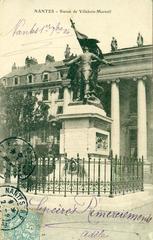Irish College Nantes: Visiting Hours, Tickets, and Historical Site Guide
Date: 04/07/2025
Introduction
The Irish College in Nantes (Collège des Irlandais) stands as a remarkable symbol of the centuries-old connection between Ireland and France. Originally established in the early 17th century to provide education and religious training for Irish Catholics exiled by the Penal Laws, the college played a pivotal role in preserving Irish culture, language, and faith far from home. Although the original college buildings are no longer fully accessible or function as a museum, their legacy endures through special events, archival collections, and the vibrant Franco-Irish heritage visible throughout Nantes.
This guide brings together up-to-date information on the history, visitor access, event programming, and practical travel tips to help you explore the Irish College Nantes and its surrounding historical sites. Whether you are a history enthusiast, cultural traveler, or simply curious about this unique chapter of European history, you’ll find essential details on visiting hours, ticketing, tours, and nearby attractions.
(Le Voyage à Nantes, Irish Philosophy, Centre Culturel Irlandais)
Table of Contents
- Historical Overview: Irish College Nantes
- Cultural Significance and Legacy
- Visiting the Irish College: Hours, Tickets, and Tours
- Nearby Attractions
- Events and Cultural Activities
- Practical Travel Tips
- Accessibility, Facilities, and Family Visits
- Frequently Asked Questions (FAQ)
- Visitor Recommendations and Conclusion
- Sources and Further Information
Historical Overview: Irish College Nantes
Origins and Foundation
Founded in the early 17th century, the Irish College in Nantes was part of a wider European network of Irish colleges created in response to the severe restrictions on Catholic education in Ireland during the Penal Laws. These colleges, initially established in Spain and later in France, the Low Countries, and Italy, provided vital religious and academic training for Irish clergy and lay students (Wikipedia).
The Nantes college followed successful models in Salamanca, Douai, and Paris, and benefited from the support of the Jesuits, local bishops, and sympathetic European monarchs—especially the Spanish crown. By 1611, over a dozen such colleges existed, collectively shaping the intellectual and religious future of the Irish diaspora (Irish Philosophy).
Role Through the Centuries
Throughout the 17th and 18th centuries, the Irish College in Nantes served as a seminary for aspiring priests and a haven for Irish exiles. Its curriculum focused on theology, philosophy, and classical studies, fostering a sense of community and cultural continuity among Irish students abroad. The college became a center for producing and preserving Irish-language texts and historical chronicles, and it helped sustain the Irish Catholic identity during times of persecution (Irish Philosophy).
Decline and Transformation
The French Revolution and subsequent Napoleonic reforms led to the closure or repurposing of many religious institutions, including the Irish College. By 1802, remaining Irish colleges in France were merged under joint administration. The founding of St. Patrick’s College, Maynooth, further reduced the need for overseas seminaries, and many, including Nantes, ceased their original functions (Wikipedia).
Despite this, the legacy of the Irish College in Nantes lives on through archival collections, cultural events, and the deep-rooted Irish connections in the city.
Cultural Significance and Legacy
The Irish College Nantes played a crucial role in sustaining Irish Catholicism, culture, and education during a period of intense repression in Ireland. It contributed to the intellectual and spiritual development of the Irish diaspora and fostered a vibrant community in Nantes. The college’s archives, including 19th-century maps and manuscripts, remain valuable resources for historians studying the Irish presence in continental Europe (Centre Culturel Irlandais).
The broader network of Irish colleges was instrumental in promoting Irish identity and facilitating cultural and scholarly exchange between Ireland and France—a legacy still celebrated through cultural programming and academic research today (Irish Philosophy).
Visiting the Irish College: Hours, Tickets, and Tours
Location and Access
- Address: 22 Rue des Carmes, 44000 Nantes, France
- Nearest Tram Stop: Commerce (Tram lines 1, 2, and 3) (Nantes public transport)
- Walkable from: Château des Ducs de Bretagne, Nantes Cathedral, Bouffay district
Visiting Hours and Tickets
The Irish College Nantes does not operate as a regular museum with daily opening hours. Instead, the site opens during special cultural events, such as:
- European Heritage Days (September)
- Le Voyage à Nantes Festival (June–August)
- Irish cultural festivals and occasional guided tours
Admission: Usually free during public events. Some guided tours or exhibitions may require advance booking or a small fee.
Visitors should check for the latest schedules and ticketing details on the official tourism website or the Nantes Tourism site.
Guided Tours
- Offered during cultural festivals or heritage events.
- Usually in French; English-language tours may be available on request.
- Advance booking is recommended for groups or during major events.
Accessibility
- Ground floor is accessible to visitors with reduced mobility.
- Upper floors require stairs; no elevators due to heritage regulations.
- For specific needs, contact the Nantes tourist office in advance.
Nearby Attractions
Make the most of your visit by exploring these nearby Nantes historical sites:
- Château des Ducs de Bretagne: Home to the Nantes History Museum (Château des Ducs de Bretagne)
- Nantes Cathedral (Saint-Pierre-et-Saint-Paul): A masterpiece of Gothic architecture
- Passage Pommeraye: Historic 19th-century shopping arcade
- Bouffay District: Medieval streets with restaurants, cafés, and Irish pubs
- Le Voyage à Nantes Urban Trail: A city-wide art and culture route featuring the Irish College among other highlights (Le Voyage à Nantes)
Events and Cultural Activities
The Irish College is a vibrant venue during Nantes’ cultural calendar:
- European Heritage Days: Free access, guided tours, and special exhibitions
- Irish Cultural Festivals: St. Patrick’s Day events, music concerts, and lectures
- Le Voyage à Nantes Festival: Urban art installations and performances, sometimes featuring the college
Stay updated via local event calendars and the Irish College’s social media.
Practical Travel Tips
Entry and Travel
- Visa/Passport: Schengen Area rules apply; most tourists do not need a visa for stays under 90 days (Travel.gc.ca France)
- Currency: Euro (€); cards widely accepted, but cash is useful
- Language: French is official; English spoken in tourist areas
Getting to Nantes
- By Train: TGV from Paris (about 2 hours)
- By Air: Direct flights from Dublin and other cities
- Local Transport: Efficient trams, buses, and bike-sharing (TAN Nantes)
Accommodation
Options range from boutique hotels to hostels in the historic center. Early booking is recommended during major events.
Food and Drink
- Local specialties: Galettes de sarrasin (buckwheat pancakes), Muscadet wine, Atlantic seafood
- Dining: Bouffay district offers numerous options, including Irish pubs with live music
Accessibility, Facilities, and Family Visits
- Facilities: Restrooms available during events; no permanent café or shop on-site
- Families: All ages welcome, but no play areas
- Groups: Advance arrangements possible; ideal for educational or cultural visits
Frequently Asked Questions (FAQ)
Q: When can I visit the Irish College Nantes?
A: Mainly during special events and festivals. Always check official sources for current schedules.
Q: Is there an entrance fee or tickets?
A: Admission is usually free during public events; some tours/exhibitions may require booking or a small fee.
Q: Are guided tours available?
A: Yes, especially during festivals or heritage days. English tours may be available on request.
Q: Is the site accessible for those with reduced mobility?
A: The ground floor is accessible; upper floors are not.
Q: What other Nantes historical sites are nearby?
A: Château des Ducs de Bretagne, Nantes Cathedral, Passage Pommeraye, and the Bouffay district.
Q: How can I access Irish College archives?
A: Digitized archives are available via the Centre Culturel Irlandais.
Visitor Recommendations and Conclusion
The Irish College in Nantes is not just a historical institution, but a living testament to Franco-Irish friendship, resilience, and cultural exchange. While regular access is limited, special events and heritage festivals provide a unique opportunity to explore its rich history. Pair your visit with nearby attractions and enjoy the vibrant city of Nantes, where the Irish legacy continues to thrive.
For up-to-date details on visiting hours, tickets, and events, always consult the official Nantes tourism website or event listings before your visit.
Sources and Further Information
- Irish College - Wikipedia
- Irish Colleges in the 17th Century - Irish Philosophy
- Le Voyage à Nantes - Official Site
- Irish College Archives and Maps - Centre Culturel Irlandais
- Irish Colleges Abroad - Encyclopedia.com
- Patrick Boyle: The Irish Colleges and the Historiography of Irish Catholicism - Cambridge.org
- Nantes Public Transport - Tan.fr
- Nantes Tourism - Nantes-tourisme.com
